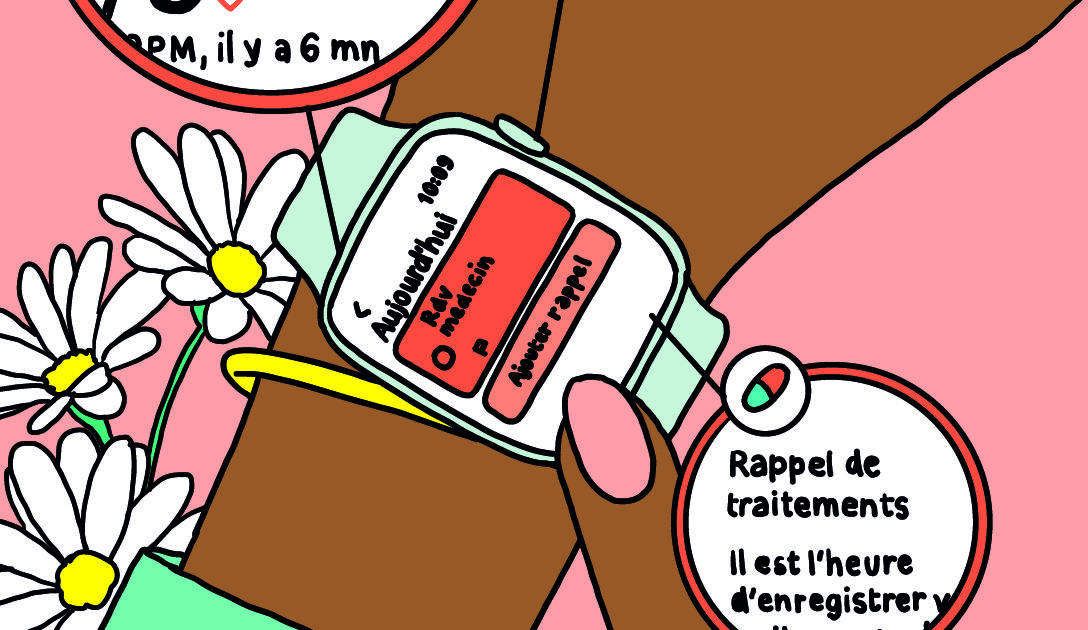Women's health has definitely gone digital. While applications dedicated to the gynaecological sphere are multiplying – starting with the very popular Clue, downloaded by more than twelve million users worldwide to control one's menstrual cycle – connected objects are also developing: the Ava bracelet to predict one's fertile periods, Elvie sensors to ensure perineal rehabilitation, the Aircon Watch watch to regulate one's temperature during menopause... The United States is emerging as the leader of "femtech" (for "female" and "technology"), a market that could reach $50 billion by 2050. But French start-ups are also getting busy, tackling unmet needs.
To discover
- The Feel Good experience: book your place for your winter's wellness beauty break
- All the recipe ideas from the editors: download the Le Figaro Cuisine app
Read alsoMenstruation, menopause, sexuality: tech is finally at the service of women's health
This is precisely what motivated Paola Craveiro, a digital entrepreneur with a passion for health, when she launched Vulvae in 2021, an app dedicated to vulvar pain. "It's still a taboo subject on which little information reaches the patients concerned," she says. The tool takes the form of a digital logbook to record pain or treatment, and to have access to online resources, scientifically validated by partner doctors.
Gaining knowledge, comfort and safety is what patients are looking for when they use applications that already exist or are still in development, such as the Lymphometry project, a connected sleeve that plans to detect lymphedema (swelling of the arm) after breast surgery, tested in 2018 by Strasbourg University Hospital. "Breast surgery is increasingly being done on an outpatient basis. Tracking apps could make it possible to return home safely and monitoredly. In the event of an alert, the patient could come back to consult as soon as possible," says Pascal Meyer, an anesthesiologist at Institut Curie and founder of the AI and Medicine blog. Benefits that seem even more relevant in medical deserts.
Tracking apps could make it possible to return home safely and under surveillance conditions
Pascal Meyer, anesthesiologist at Institut Curie
Technological advances to heal
Beyond individual cases, new technologies can also advance general research. Vulvae has thus led to the creation of the largest database ever created on vulvar pathologies. But for privacy reasons, the 40,000 observations collected in partnership with an Italian university – as well as all the information shared by users – must be anonymized.
Because while digital technology and AI are exciting, they also raise ethical questions. "When abortion became illegal in the United States, the data entered into a menstrual tracking app could have been used as evidence in the event of prosecution," says lawyer Clémence Marolla, co-founder of the innovation firm Blast. As health data is considered sensitive, it is necessary, before sharing your personal information on an app or connected object, to ensure confidentiality guarantees such as compliance with the GDPR (General Data Protection Regulation) and the use of a server hosted in Europe. From the doctors' point of view, opinions are divided.
The only real question is: on a case-by-case basis, does an app really bring something extra to the patient?
Dr. Servane Mouton, neurologist, coordinator of the book Humanity and Digital Technology (Ed. Apogée)
Dr. Servane Mouton, neurologist, coordinator of the book Humanity and Digital Technology (Ed. Apogée) expresses reluctance in the face of unlimited use. "The only real question is: on a case-by-case basis, does an application really bring something more to the patient?" she asks, also taking into account the impact of digital technology on the environment. Pascal Meyer explains: "My fear is that applications would make decisions autonomously, without the supervision of a doctor." Even if, in his eyes, this is not yet technically possible. As relevant as they are, new technologies must remain in their place as tools. "To reduce everything to algorithmic processing is also to reduce humans to machines. It's much more complex than that," says Servane Mouton, for whom relationships and clinical examinations remain irreplaceable.

